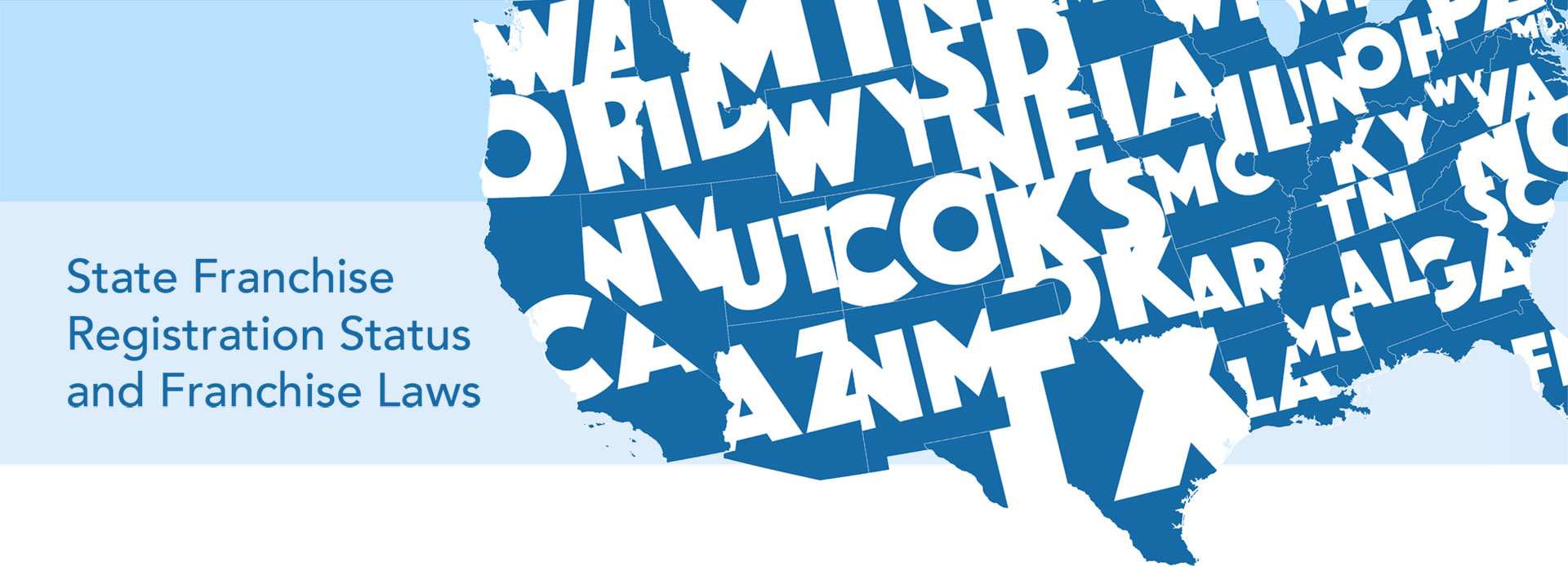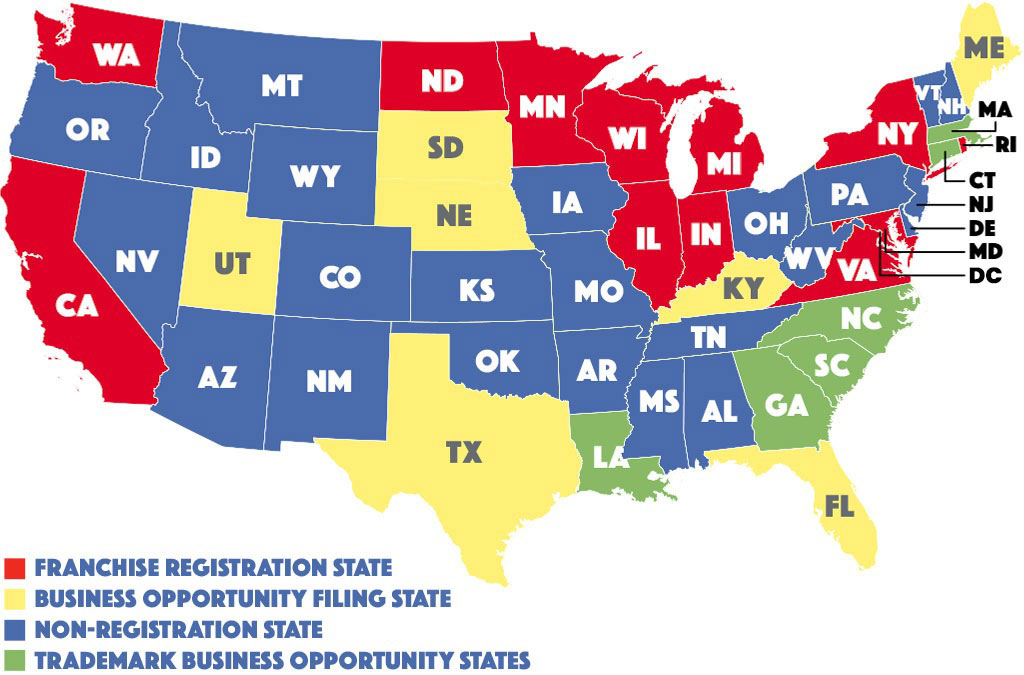
Complying with federal franchising laws is the “easy” part. It’s complying with all of the individual state requirements that can really give you gray hairs. The FTC’s federal franchise rule does not have any of registration requirements, just that prospects are properly disclosed with a properly drafted franchise disclosure document (FDD). The states on the other hand, have varying levels of what is required of franchisors prior to offering or selling franchises in their states. Some states have no additional requirements, and franchisors in those states just need to follow the federal franchise rule. Other states require registration of what they typically call “business opportunities.” These business opportunity states typically allow franchisors, who are in compliance with federal franchise laws, to file some form of exemption notice as opposed to going through the full business opportunity registration process. These exemption notices may be one-time filings, or need to be filed every year. Some additionally require that the franchisor own and license a registered trademark as part of their franchise opportunity.

The last set of states are what we refer to as franchise registration states. In these states, franchisors must register their FDD with the state prior to offering or selling franchises in that state (and in the case of NY, before a NY franchisor offers or sells any franchises, anywhere). The registration process varies from state to state, with some only requiring a simple filing of the FDD, while others conduct a thorough review of the FDD and its disclosures, often demanding the franchisor make changes along the way. This typically results in the process taking significantly longer than it does in non-registration states. Check out our map below to explore each state’s franchise requirements (and yes, we know DC isn’t a state)!
STATE FRANCHISE REGISTRATION STATUS AND FRANCHISE LAWS
Rhode Island
Registration or Filing Required? Yes, Registration
Business Opportunity Laws? Yes
South Dakota
Registration or Filing Required? Yes, Registration
Business Opportunity Laws? Yes



















































